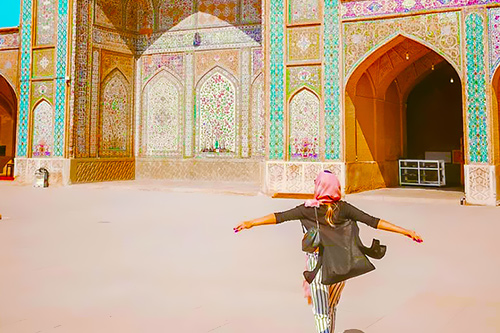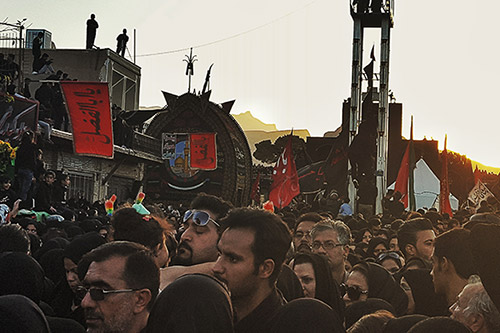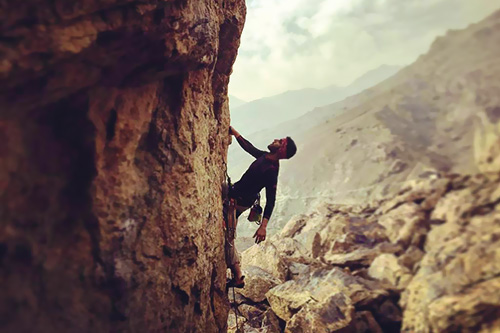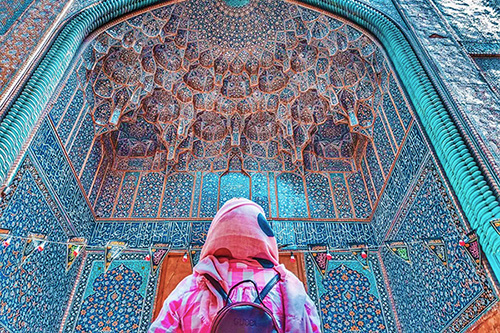 Signin with Google
Signin with Google Signin with Facebook
Signin with Facebook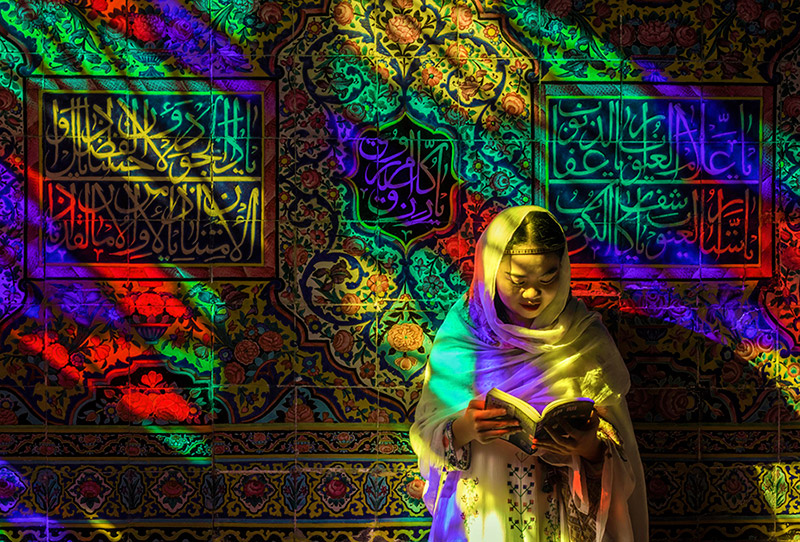 About Iran
About IranTop Things to Do in Tabriz
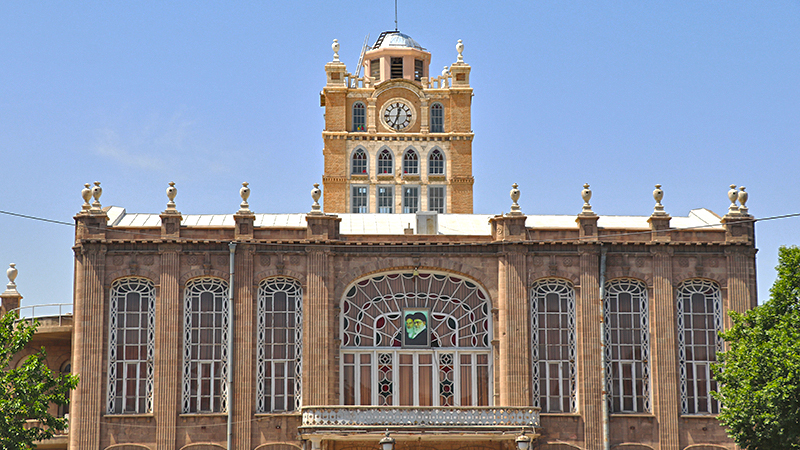
Tabriz: A Gateway to Azerbaijan Culture and Persian Heritage
Once a thriving hub along the illustrious Silk Road, Tabriz has evolved into a majestic metropolis, captivating travellers with its rich history and enchanting charm. A city that pulsates with the echoes of its ancient past and embraces the vibrant spirit of Azari culture. Let Tabriz cast its spell on you, leaving an indelible mark on your heart and memories that will forever ignite your wanderlust.
Are you ready to embark on an unforgettable adventure? Here is a full guide to Tabriz with all the essential information you need.
1. The Grand Bazaar of Tabriz: A Living Legacy of the Silk Road Era
Explore one of the world's largest indoor markets, a UNESCO World Heritage site. Step into Tabriz's bazaar and be enchanted by its arches and brick-vaulted domes displaying Islamic and Eastern architecture. Immerse yourself in the interconnected aisles, where carpet shops, mosques, and schools create a captivating atmosphere. Witness its phoenix-like rise from the ashes after a devastating earthquake in 1779, adding to its allure and significance.
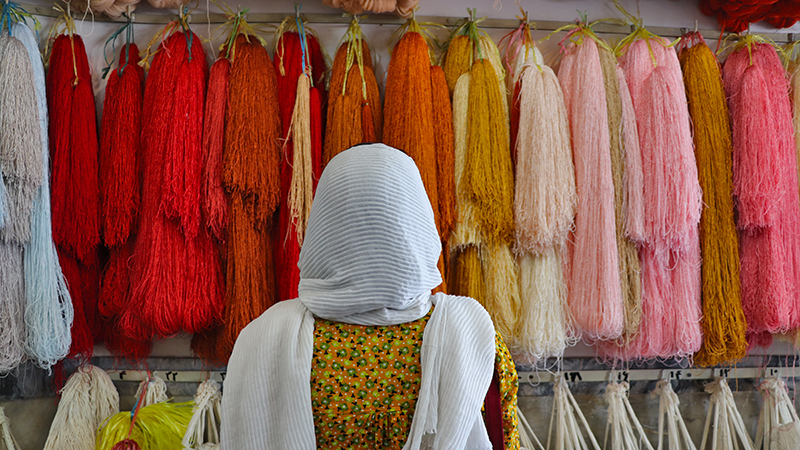
Venture into the heart of the market and discover the hidden gem, the 63-Pillar Mosque, an architectural marvel and sanctuary for salesmen seeking solace. Delve into the history that permeates the Grand Bazaar as you follow the footsteps of the Iranian constitutional revolution near the former Russian Embassy. This historic pathway, known as the blood corridor, unveils stories of valour and change.
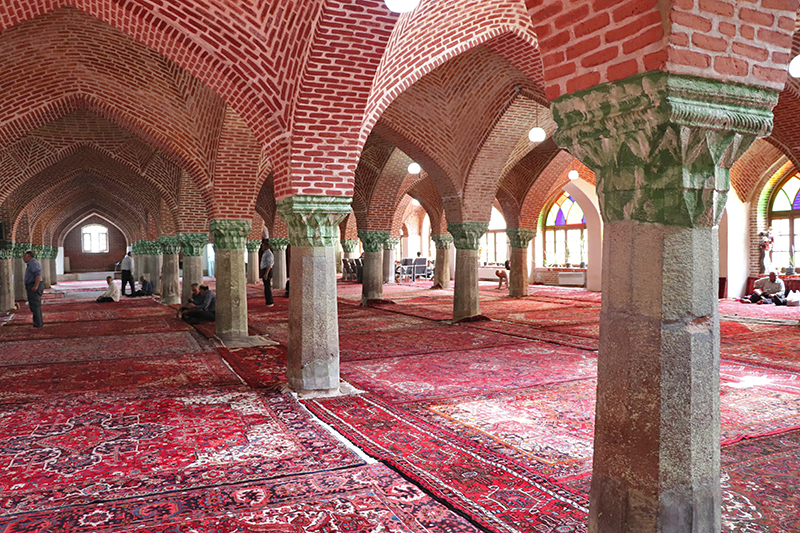
Complete your journey by indulging in endemic tea in the Mozaffariyeh hall. Embrace the ambience and traditions that have flourished within these walls for centuries. The grand bazaar of Tabriz beckons, offering an adventure of architectural wonders, cultural treasures, and a profound sense of Iran's history. Embark on this voyage and let its beauty and charm captivate you at every turn.
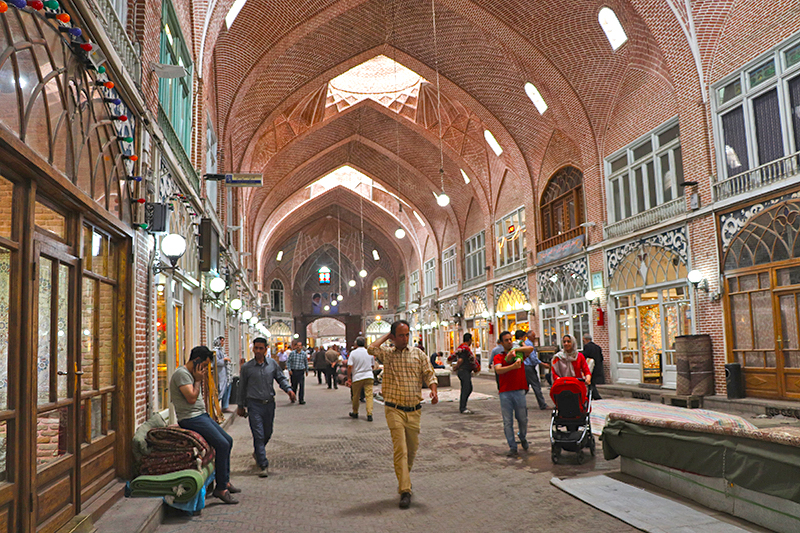
2. Discover the Magic of El-Goli: Tabriz's Iconic Lake and Promenade
Step into the realm of Shah Goli, a beloved destination cherished by the people of Tabriz. This oasis, now revered as the symbol of the city, began as an artificial lake commissioned by the Torkaman rulers, Aq Quyunlus (1378-1501). Over time, the lake expanded under the Safavid Kings (1501-1736), who utilized its waters to nurture the eastern gardens of the town.
Within the lake lies an octagonal mansion across two floors. Accessible via a pathway through the tranquil waters, this architectural gem invites explorers to uncover its hidden wonders. With a depth of twelve meters, the lake offers delightful boating adventures. Immerse yourself in a world of amusement and pleasure as you explore the diverse attractions and dining experiences within the promenade.
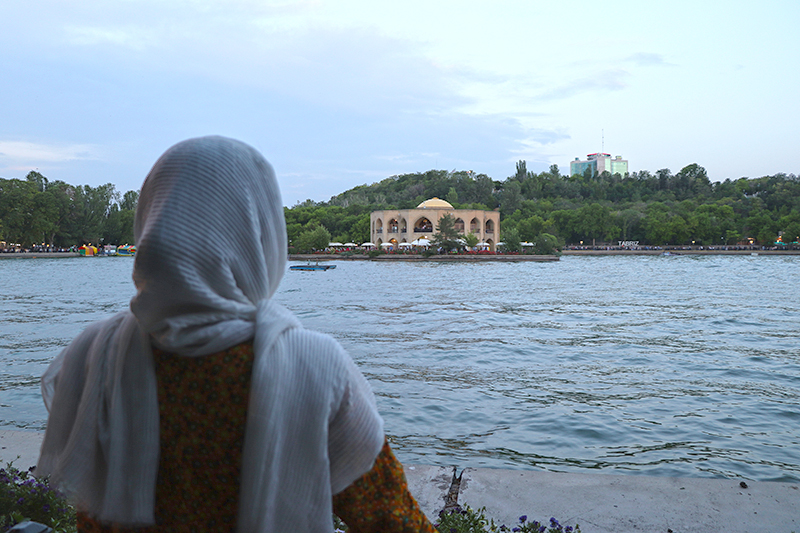
3. Embark on a Journey of Wonder at Tabriz's Enigmatic Blue Mosque
Don't miss the chance to visit the Blue Mosque when in Tabriz. Also known as Shah Jahan Mosque, Kabood Mosque, Guy Machid, or Mozaffariyeh Mosque, it earns its name from the beautiful azure blue tiles that adorn its walls. This stunning mosque is the sole surviving component of the Mozaffariyeh complex, which once comprised a monastery, library, courtyard, and mosque.
Constructed in 1465 under the patronage of Jahan Shah, the Blue Mosque was renowned for its architectural splendour. Sadly, an earthquake in 1779 caused significant damage, leaving only remnants like the entrance and a few pedestals as reminders of its former grandeur. Despite its partial state, the Blue Mosque still captivates visitors with its unique charm.

4. Visit the Alishah Citadel
This 700-year-old Citadel (Arg) was once the sole towering structure that could be easily spotted even from a distance. This ancient landmark of Tabriz was initially constructed under the orders of the regional ruler, Alishah, to serve as a mosque and his final resting place. The construction commenced in 1318 but was halted twenty years later following the king's demise. Over the subsequent years, the expansive edifice underwent various uses, including serving as a military ammunition depot and a granary during the Qajar dynasty. As a result, a tall mud wall was erected around it, hence earning the name Alishah Citadel or Arg-e Alishah. After enduring significant damage from earthquakes and wars, the towering wall stands today as the sole remaining section of the citadel.
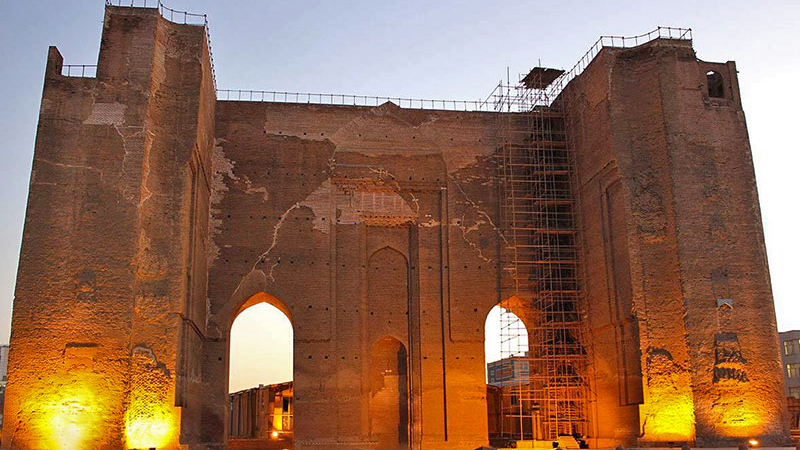
5. The Grand Mosque of Tabriz
The Grand Mosque or Jameh Mosque was built about one thousand years ago, during the region of Seljuks (1037-1194). This magnificent monument was also getting serious damage in the earthquake. With the advent of the Qajar dynasty, the ruler of Tabriz restored and rebuilt this historical mosque.
6. Pay a visit to famed poets at Maqbarat-o-Shoarra
Maqbarat-o-Shoarra or Poets Tomb is the 800-year-old cemetery where more than 400 famous Iranian poets, mystics, and dignitaries have been buried. For this reason, one of the historic cemeteries of Iran is in Tabriz.
7. Marvel at the Museum of Azerbaijan
The Azerbaijan Museum is the second most significant archaeological museum in Iran, following the Iran National Museum. This impressive museum spans three floors and comprises various office rooms, a library, and three theatre halls on each level. Within the Azerbaijan Museum, a vast collection of valuable artwork and antique objects, totalling approximately 12,000 items, representing the pre-Islamic and Islamic eras, is meticulously preserved. Among the noteworthy artefacts, visitors can admire the 7,000-year-old pottery from Ismailabad Hill, remnants from the civilization of the fourth century BCE, and mud objects discovered in Neishabour, featuring Islamic motifs and Kufic calligraphy on a white glaze.
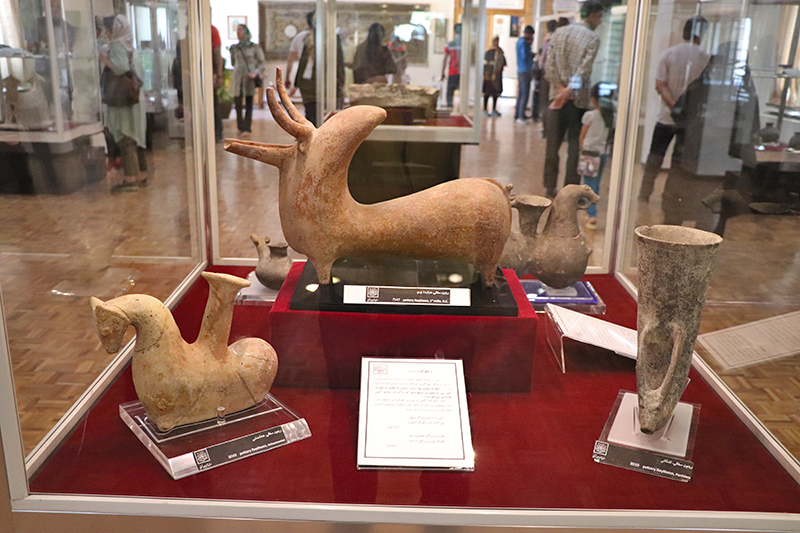
8. Tabriz Museum of Natural History
Delve into the natural history of the region at the Tabriz Museum of Natural History. Discover a diverse range of exhibits showcasing geological specimens, fossils, and indigenous flora and fauna.
9. Walk along the Tarbiyat pedestrian path
Located at the historical heart of the city, Tarbiat Street was built during the first Pahlavi time. This pedestrian paving street can show you the connection between culture and architecture in Tabriz. You can find historic buildings, nice statues and many shopping stores and malls. The Tarbiat pedestrian path is the perfect destination to enjoy the city's dynamic culture and captivating atmosphere.
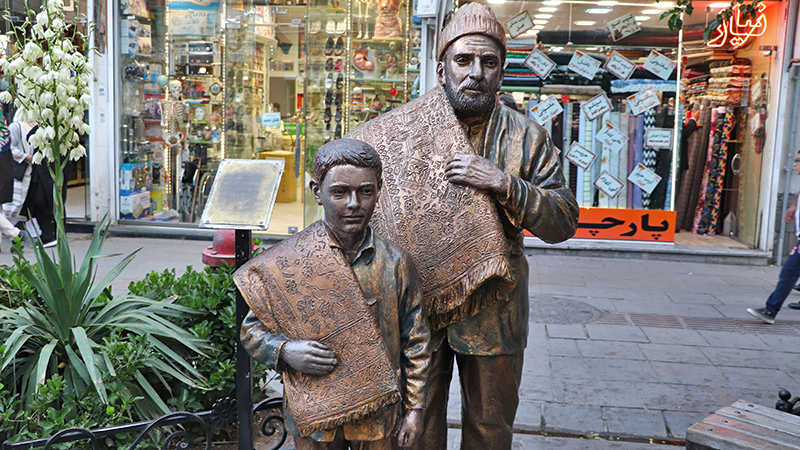
10. Historical neighbourhood and old houses
Tabriz city boasts a rich tapestry of historic houses and mansions that stand as timeless witnesses to its glorious past. Each historic house and mansion showcases unique elements of design, craftsmanship, and historical significance. From the elegant Qajar-era mansions with their exquisite stucco work and intricate frescoes to the enchanting Safavid-era houses adorned with beautiful tile work and elaborate courtyards, Tabriz's historic dwellings transport visitors to a world of opulence and grandeur. Here is the list of offers that you can visit when in Tabriz City.
Behnam mansion
Behnam Mansion is a captivating tourist attraction that displays the rich history and architectural beauty of the city. This magnificent mansion, constructed during the Qajar period, owns intricate designs, graceful courtyards, and impressive stained glass windows. Behnam Mansion provides a fascinating insight into the artistic and architectural achievements of its time. Whether you have a penchant for history, and Persian architecture, or simply desire a unique cultural experience, a visit to Behnam Mansion is a must when exploring Tabriz.
Constitution House of Tabriz
Visit the Constitution House, a historical site where revolutionary activities took place during the Iranian Constitutional Revolution. It now serves as a museum and offers insights into the country's political history.
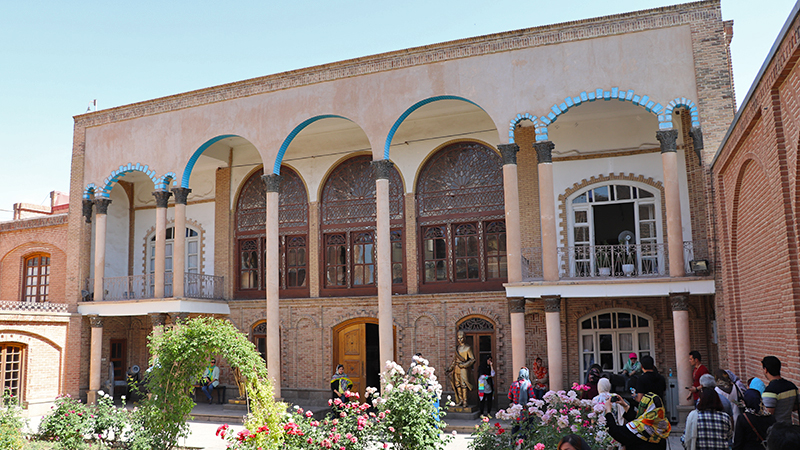
Qajar Museum
Step into the Qajar Museum, housed in a beautifully restored Qajar-era mansion. Discover a collection of artefacts, artworks, and exhibits that provide a glimpse into the opulent lifestyle of the Qajar dynasty.
Tabriz is home to many more historic and old houses some of them are Nikdeh House, Shahriyar House, Ali Musio Museum, Sharbar Oghli House, Amir Nezam Garrousi Mansion and Parvin Etesami House.
Tabriz the World Carpet Weaving city
Renowned for its rich history and unparalleled craftsmanship, Tabriz stands as a testament to the artistry and skill of its weavers. In 2015, this illustrious city received an esteemed accolade when it was designated as a "World Carpet Weaving City" by the World Crafts Council (WCC). A visit to Tabriz is a chance to experience firsthand the artistry and cultural legacy that have made it an iconic centre for Iranian carpet weaving. Embark on a fascinating journey through the dyeing workshops where vibrant threads come to life, destined to be woven into exquisite carpets. Immerse yourself in the bustling bazaars of Tabriz, where time seems to stand still, and marvel at the awe-inspiring masterpieces proudly on display.
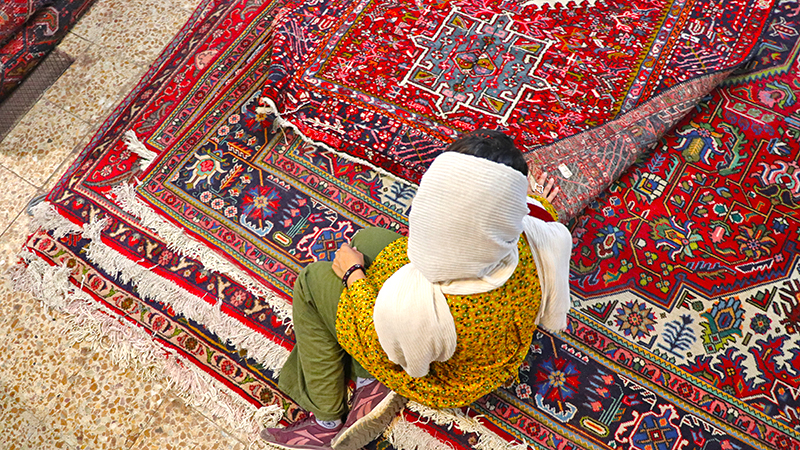
An unforgettable gastronomy journey in Tabriz
Tabriz's culinary scene is a true delight for food enthusiasts. Known for its rich and diverse flavours, the city offers a gastronomic journey like no other. Read below to learn about the essential Tabrizi Foods and Desserts.

The culinary treasures of Azari cuisine are a tantalizing enigma that captures the hearts of Iranians far and wide. Tabriz, known as the Kufteh capital of Iran, offers an unparalleled experience for food lovers. Indulge in the authentic flavours of Kufteh, a speciality unique to Tabriz, and don't forget to savour the heavenly Baklava and Kunfeh desserts. During your stay in Tabriz, immerse yourself in the culinary delights by trying the esteemed Tava Kababi, a divine kebab exclusive to this city. And while exploring the vibrant streets, make sure to indulge in the all-time favourite street food of Tabriz, the irresistible Yer alma Yumurta, a delectable potato and egg sandwich. Tabriz is also renowned for its delectable sweets, including the famous "Gaz" and "Nougat."
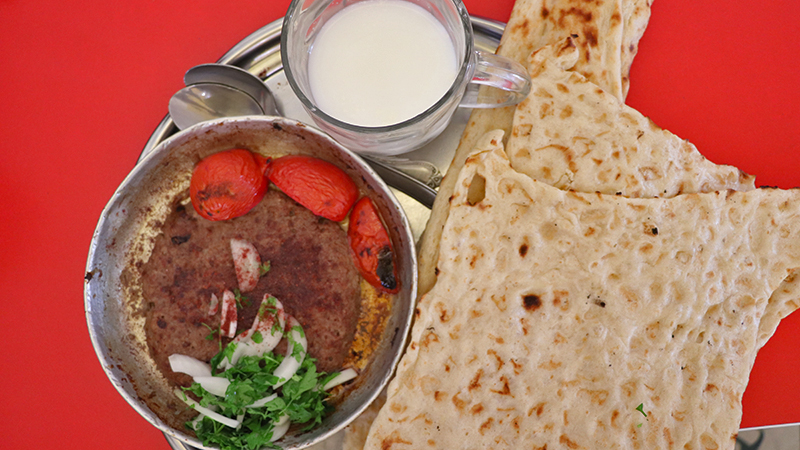
Top Attractions Near Tabriz City
Some spots of tourist attractions lie near Tabriz, where you can head for a day trip.
Kandovan Village
Kandovan Village locates In 60 kilometres southwest of Tabriz, near the city of Osko showcases the resourcefulness of its inhabitants. Carved into volcanic rocks, its unique beehive-like homes create a captivating landscape. Wander through the narrow streets of this National Heritage of Iran, experience the village's timeless charm, and discover local traditions. This enchanting destination offers a glimpse into the harmonious coexistence of nature and human creativity.
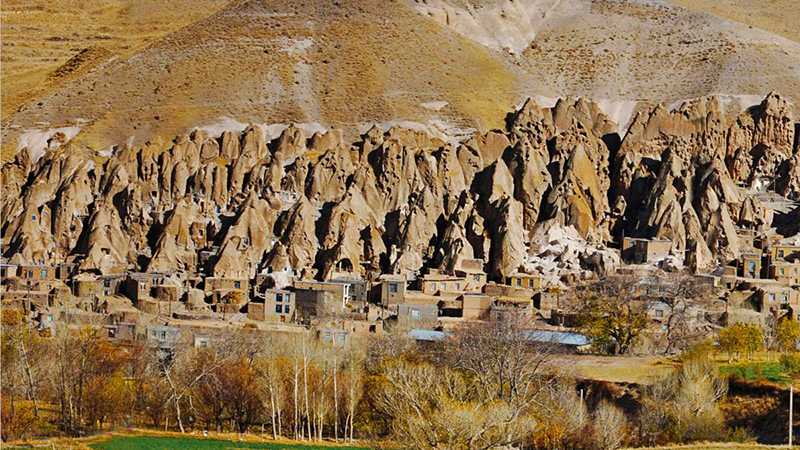
St. Stephanos Monastery
Azerbaijan and Tabriz are home to a thriving Iranian-Armenian community, contributing to the cultural diversity of the region. Standing proudly on the southern bank of the Aras River in Julfa, one of the renowned Armenian churches commands attention. Second in significance only to the Saint Thaddeus Cathedral, the Monastery of Saint Stepanos, widely known as St. Stephen's Church, holds a prominent place within the Armenian heritage of Iran. Revered as the "Ghezel Vank" or the Red Monastery, owing to the captivating reddish hue of its structure, this architectural marvel dates back to the 10th or 12th century. Despite enduring natural calamities over the years, this cherished national heritage was meticulously restored during the illustrious Safavid period, preserving its grandeur for generations to come.
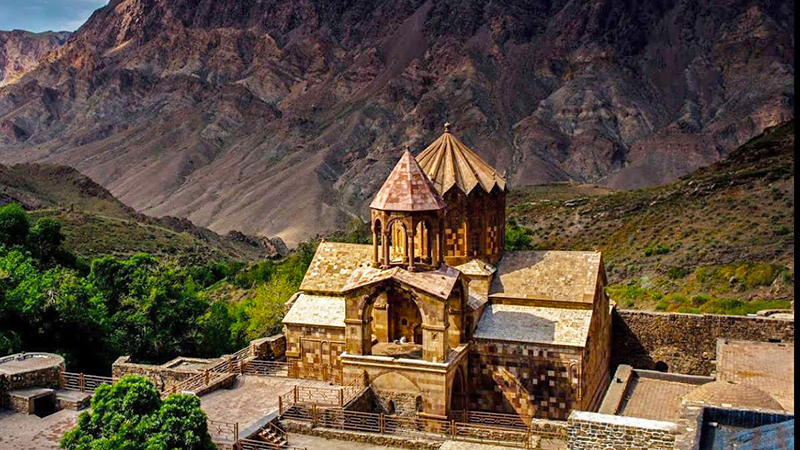
Eynali mountain range
Eynali promenade is one of the highest peaks where you can use the cable car and climb to see the sun setting down over the whole Tabriz. There is also an artificial lake called "Daq Goli", which adds to the beauty of the red mountains. It is also a pilgrimage site where two of the sons of Imam Ali, the most important Shia figure, are buried.
Rainbow Mountains of Aladaq Lar
While travelling from Zanjan to Tabriz, a natural phenomenon awaits near Bostanabad city, captivating passersby and enticing them to pause for a closer examination. Aladaq Lar's mountain range unveils a spectacle of layered sandstones in an array of red, orange, green, and yellow hues. These distinct bands of soil bear witness to millions of years of mineral compaction and oxidation, resulting in this display. Nestled within these mountains lies a village adorned with colourful houses, enhancing the beauty of this location. At times, the flowing water mirrors the colours of the mountains, creating a scene that leaves an impression on all who witness it. Prepare to be captivated by the imagery that unfolds before your eyes, offering a truly unforgettable experience.

Eynali Mountain
Embark on a scenic hike or drive to Eynali Mountain, located on the outskirts of Tabriz. Enjoy breathtaking panoramic views of the city and its surrounding landscapes from the mountain's summit.
Sahand Ski resort
Sahand Mountain is one of the dormant volcanic mountains of Iran with an altitude of 3707 meters. As the slopes of Sahand are covered with snow in the cold months of the year, the largest ski resort in northwest Iran is the best choice for a winter trip. Here you can use cable cabins and lifts, get lessons at the ski schools, or stay a few days in the hotels. In warmer seasons you can visit breathtaking natural sceneries of green gorges and water-rich rivers of the region.

Babak Castle, a symbol of resilience and bravery
Babak Castle, located in the West Azerbaijan province, is a captivating ancient fortress perched atop a rugged mountain peak. Steeped in history and surrounded by breathtaking natural beauty, Babak Castle stands as a testament to the region's rich heritage. Originally built in the 9th century by the local Persian hero Babak Khorramdin, the castle served as a stronghold during his resistance against the Abbasid Caliphate. Babak Khorramdin, led a courageous rebellion against the oppressive rule of the caliphs, fighting for the rights and freedom of the Persian people. Today, visitors can explore the ruins of this formidable fortress, climbing its stone staircases and traversing its ancient chambers.
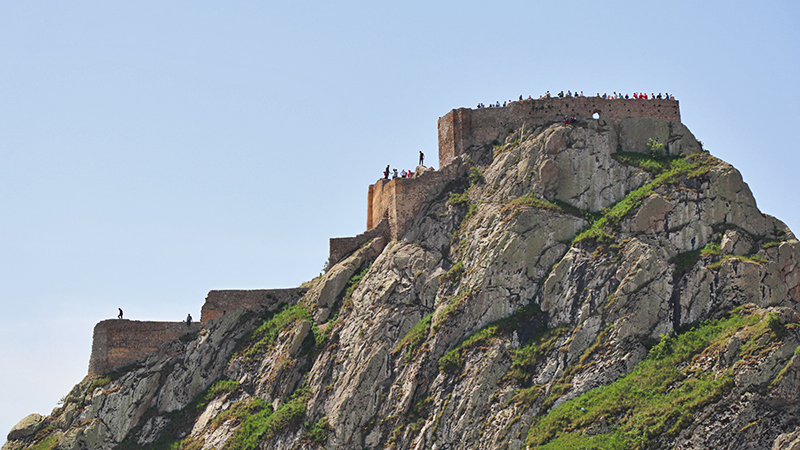
By Samaneh Zohrabi | TasteIran
